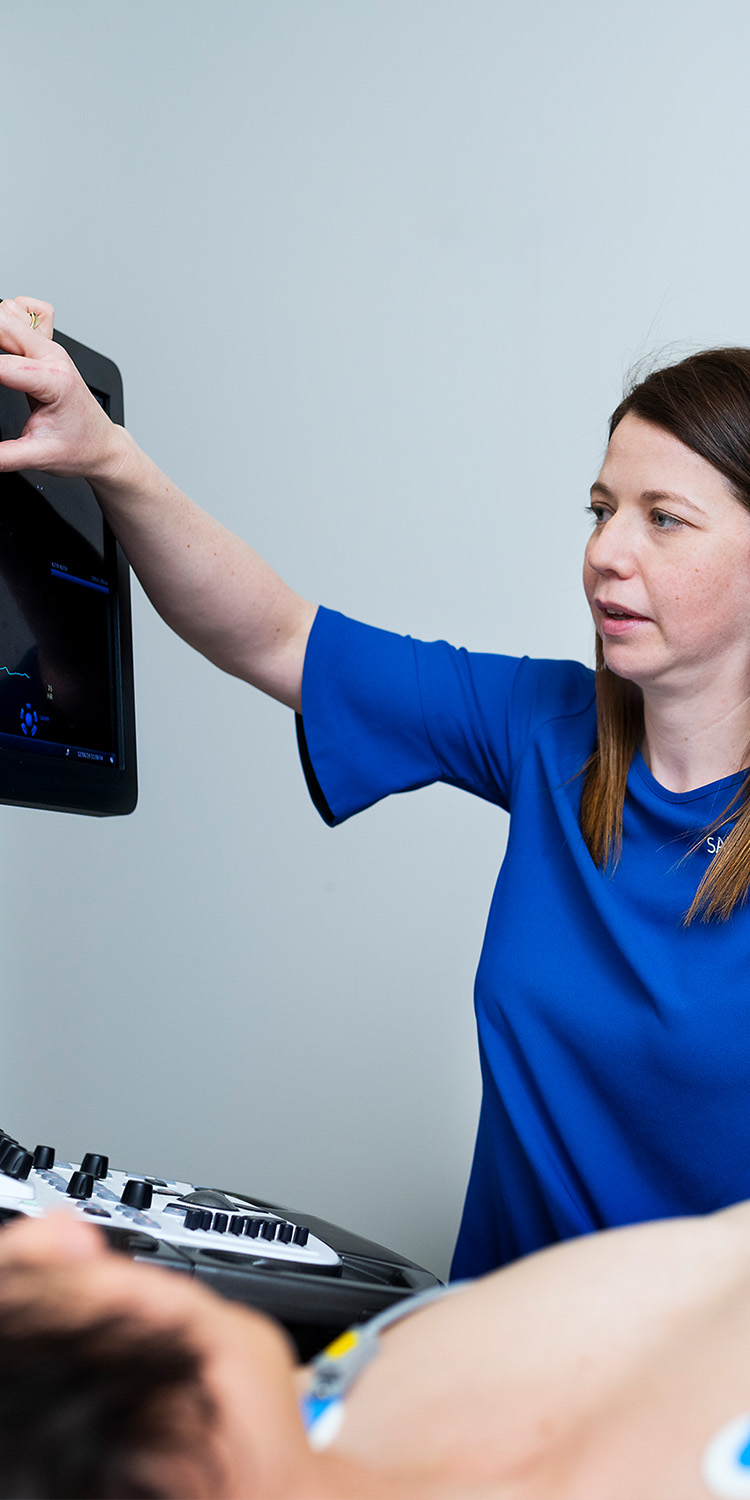What you'll learn
When you study the Master of Medical Sonography (Cardiac) at Adelaide University, you’ll master the core principles of ultrasound technology, with a focus on the cardiovascular system.
This program will equip you with the advanced clinical and research skills needed to excel in the fast-paced field of cardiac sonography.
Over three years of part-time, online study, you’ll learn how to use ultrasound equipment to examine the heart and blood vessels. You’ll start with core courses like ultrasound physics and instrumentation, and cardiovascular anatomy and embryology.
As you progress, you’ll take specialised courses such as advanced cardiac haemodynamics and clinical applications of echocardiography.
You can further tailor your studies with electives to fit your career goals - whether in clinical practice, research, or leadership roles.
Options include:
- Health ethics
- Research for advancing healthcare
- Project management for business.
Practical experience is key in this program. You’ll complete supervised cardiac scanning and real-world clinical training helping you to apply what you’ve learnt in busy healthcare settings.
Learn from world-class researchers and skilled sonography experts through online discussion forums and virtual classrooms. These interactive sessions not only help you gain valuable knowledge but also connect you with industry professionals, building important networks for your future career.
The combination of theory, hands-on learning and specialised electives, ensures you’ll graduate ready to make a significant impact in the field of cardiac sonography.
This degree can be studied mostly online, however it may also have some on-campus and/or in-person requirements you will need to complete for accreditation purposes. This may include in-person intensive classes, workshops or professional placements.










